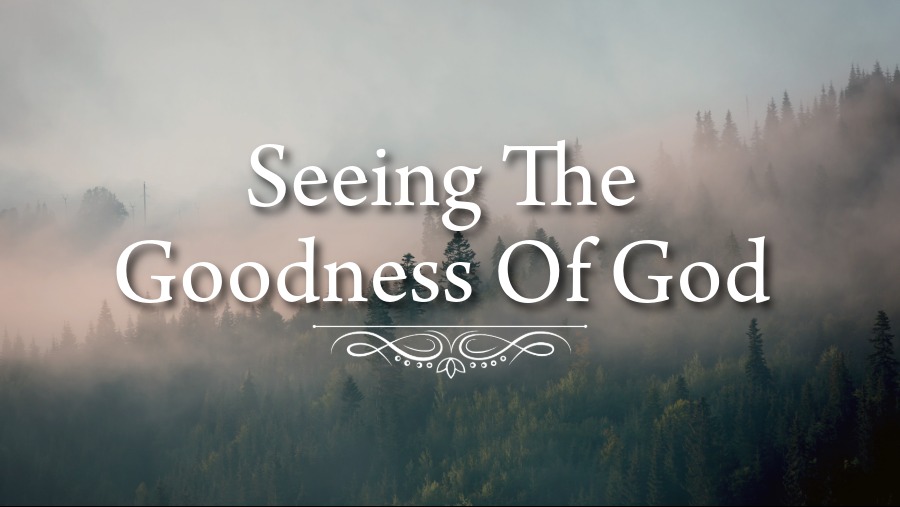
Privilege Without Faith
The message revisits Romans 9 to distill its heart beyond the heavy doctrine: God’s people must pair sound teaching with a burning compassion, receive their privileges with humility, and walk by faith rather than mere form. The preacher frames the chapter as a contrast between being broadly “blessed” (many receive benefits) and receiving “the blessing”(God’s chosen channel of promise), urging believers not to waste what God has placed in their hands.
1) Doctrine with a pulse: Paul’s startling compassion (Rom 9:1–3; anchored in Rom 8:35–39)
Paul opens Romans 9 with a shocking declaration: he could wish himself “accursed from Christ” for the salvation of his kinsmen. The preacher underscores this as passion, not literal desire for damnation. It’s the kind of heart that sometimes “overheats” with zeal—like excited children before a big trip—contrasting dangerously with a cool, indifferent spirituality.
Set against the backdrop of Romans 8, where nothing can separate us from the love of God, Paul’s words highlight what separation would mean: to forfeit unfailing love, comfort in tribulation, and victory (“more than conquerors”). This intensifies Paul’s statement: he’d rather lose all of that—if that were what it took—to see Israel saved. The application is practical: doctrine matters, but doctrine should inflame love and mission, not dull them. Real belief shows up in how we live and how deeply we care for others’ souls.
2) Israel’s breathtaking privileges—and how privilege can be wasted (Rom 9:4–5, 6)
Paul catalogs Israel’s advantages: adoption (“I will be your God”), glory (God’s presence in tabernacle/temple), covenants (Abraham, Moses, David), the law, service (the privilege to serve God), promises (a coming Savior), the fathers (Abraham, Isaac, Jacob), and climactically Christ according to the flesh. The preacher stresses how staggering these privileges are—yet they did not guarantee righteousness or salvation.
He draws a modern parallel: many of us live amid abundant material and spiritual privilege (freedom to worship, access to Scripture, faithful preaching). The tragedy is not with God’s Word—Paul says “it has not failed” (v. 6)—but with people who neglect or grow numb to what they’ve been given. Privilege becomes background noise; Bibles get left behind; church becomes ordinary; the wonder of access to God’s Word evaporates into routine. The warning is sober: privilege mishandled dulls spiritual appetite and can lead to missing “the blessing” God means to give through it.
3) Blessed vs. “the blessing”: the overlooked detail that explains a lot (Rom 9:7–13)
To illustrate, the preacher recalls Abraham’s family: though many were blessed (Abraham had more sons than the two we commonly name), only one line received the blessing of the promise. In the contrast between Jacob and Esau (“Jacob have I loved, Esau have I hated”), the preacher clarifies that Scripture’s “hate” here functions as comparative preference—as when Jesus says we must “hate” father and mother by comparison to our love for Him. God chose the line of promise—Israel—without denying that others received real blessings.
The takeaway: many experience good from God, but few steward their position to receive the covenantal blessing—the channel through which God carries redemption history. This is not about God’s cruelty but about God’s sovereign mercy(vv. 15–16): He shows compassion where He chooses. Applied personally: do not mistake general kindness from God for the specific blessing that flows through faith and obedience.
4) Two faces of God’s goodness: comfort on the mountaintop and formation in the furnace (Rom 9:14–23; broader biblical examples)
The preacher contrasts two kinds of “blessed lives”:
- Mountaintop Blessing (visible prosperity, ease, obvious answers to prayer). The right response is praise (“Let the redeemed of the Lord say so”). Such people should be loud in gratitude so others can see the goodness of God.
- Furnace Blessing (trials, endurance, suffering). The right response is faithful instruction by example—holding steady teaches others what God is like in the dark. Figures like Joseph, Job, David, and supremely Jesus (a “man of sorrows”) lived here. In Gethsemane, even the Son says, “Let this cup pass,” modeling honest dependence when obedience is costly.
The preacher cautions that more people stumble under prosperity than under pressure. Whichever side you’re on, the command is the same: stay faithful. If you’re in the fire, your perseverance may be a testimony designed to shape others. If you’re on the heights, let your gratitude be a witness that honors God rather than self.
5) Sovereignty without accusation: Who are we to reply against God? (Rom 9:19–21)
When people ask why God orders lives differently—why some seem to carry heavier loads—the passage answers with a rebuke: “O man, who are you to reply against God?” The preacher doesn’t use this to silence lament but to recenter trust. Both the softness of mercy and the weight of trial belong within God’s wise, sovereign purposes. The point isn’t to decode every hardship but to refuse resentment and embrace faithfulness in the lane God assigns.
6) Why some miss it: works-righteousness vs. the righteousness of faith (Rom 9:30–33)
Paul concludes with a shocking reversal:
- Gentiles, who had not pursued righteousness, obtained it—by faith.
- Israel, who pursued a law of righteousness, did not attain it—because they sought it by works, not by faith; they stumbled at the stumbling stone (Christ).
The preacher ties this back to privilege: those who’ve grown up around Scripture, services, and spiritual routines can slip into form without faith. Meanwhile, someone with no religious background can meet Christ fresh, take God at His Word, and walk into blessing because they believe. The dividing line is not heritage, volume of exposure, or zeal for rules; it is faith in the Righteous One.
He illustrates pastorally: when spiritual newborns are messy—reading their Bible with lingering vices—God is at work. Don’t quench early faith by demanding mature polish before the heart has time to grow. Faith precedes fruit. Give God room to transform; don’t weaponize knowledge to choke new life.
7) The core calls to action
- Recover a Romans-9 heart. Pair sound doctrine with Paul’s passion for the lost. Care enough to pray and labor sacrificially.
- Refuse to neglect privilege. Treat access to God’s Word, gathered worship, and gospel opportunity as holy gifts. Handle them with awe and consistency.
- Discern “blessed” vs. “the blessing.” Many enjoy God’s kindness; seek the promise-path that flows through obedient, trusting faith.
- Stay faithful—on heights or in heat. On the mountaintop, praise. In the furnace, persevere. Both reveal God; both are assignments for His glory.
- Stop arguing with God’s lane. Trust His wisdom in your story; don’t compare away your calling.
- Choose faith over form. The righteousness that saves and sustains is by faith, not performance. Christ is the cornerstone—don’t stumble over Him by clinging to self-effort.
8) Bottom line
Romans 9 shows a God who sovereignly chooses the channels of His promise, offers real privileges to many, and insists that the blessing be received by faith. Paul models the heartbeat that should accompany doctrine: a willingness to be spent for others’ salvation. Israel’s story warns that proximity to truth can harden into complacent works-religion; the Gentiles’ story celebrates that anyone who believes can enter the blessing. For every believer—prosperous or pressed—the call is the same: do not neglect what you’ve been given, do not grow bitter over what you lack, and do not trade faith for form. Fix your trust on the Righteous One, and walk your lane faithfully, until the God who chose you is clearly seen in your praise and your perseverance.










.jpeg)











